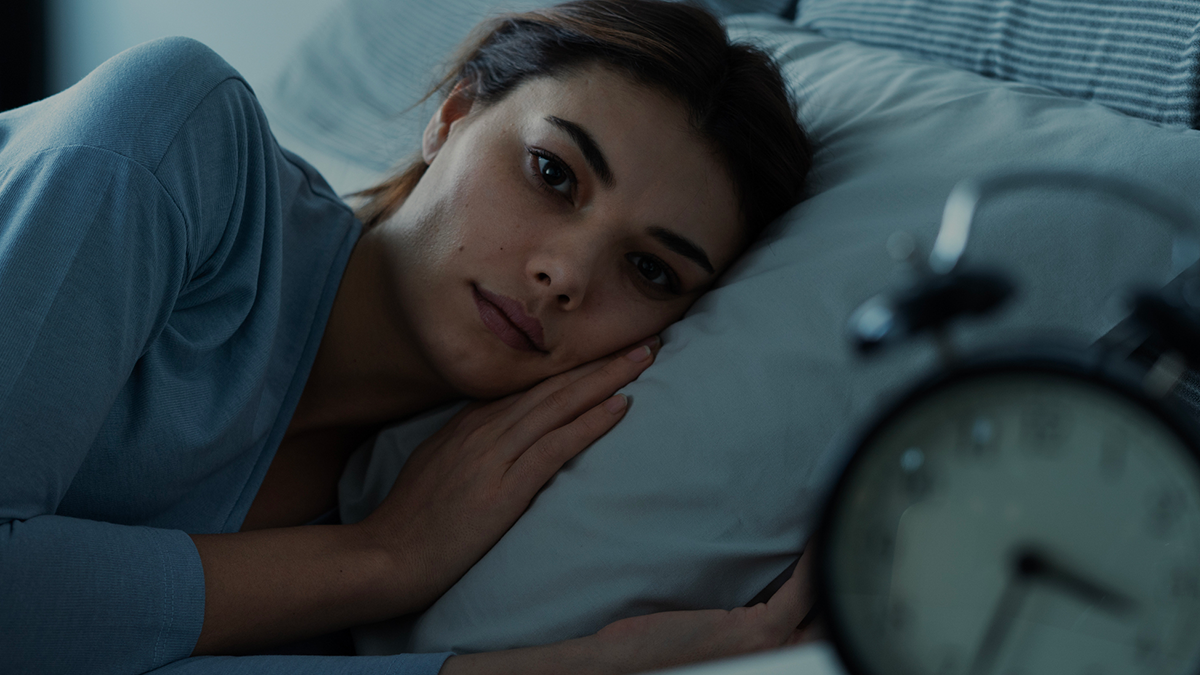why you wake up at 4am : Sleep specialists have shared the ideal bedtime to help prevent a spike in cortisol levels that can cause you to wake up suddenly at 4 a.m.
A naturopathic doctor’s viral video has shed light on the “second wind” phenomenon and how it impacts the body’s sleep hormones — striking a chord with countless night owls.
In the video, Dr. Kara explains that sleeping between 11 p.m. and 1 a.m. disrupts the natural balance between cortisol and melatonin, resulting in poor sleep quality.
When you go to bed between 11 p.m. and 1 a.m., you’re actually doing your hormones a disservice,” she says. “Cortisol levels should be at their lowest in the evening to allow melatonin to peak, guiding you into deep, restorative sleep.
Because cortisol and melatonin work in opposite cycles, staying up past 11 p.m. triggers additional cortisol spikes — sometimes a second, third, or even fourth surge.
This spike suppresses melatonin and can also lead to nighttime hypoglycemia, causing you to wake up a few hours later,” Dr. Kara explains. “The optimal bedtime is around 10:30 p.m., which helps prevent the cortisol surge and supports a natural wake-up time near 6:30 a.m.
The Hormone Behind Your 4AM Wake-Ups
Viewers quickly related to the video, with one joking, “Me watching this at 11:30 p.m.,” and another adding, “Who else is seeing this after going to bed past 1 a.m., waking up at 4, and still can’t fall back asleep?
Sleep specialist Matthew Beard, CEO of A.H. Beard, confirmed to news.com.au that the so-called “second wind” is indeed a real biological response.
It’s a natural burst of alertness that occurs in the evening, driven by our circadian rhythm,” Beard explained. “That’s why you may suddenly feel awake when you expect to feel tired. Trying to sleep during this phase can be difficult, often delaying your sleep cycle and lowering the overall quality of rest.
The Viral “Second Wind” Phenomenon Explained
Beard explained that for most adults, going to bed between 10 and 10:30 p.m. aligns most effectively with the body’s natural rhythm.
This time frame promotes both deep and REM sleep, which are essential for maintaining energy, concentration, and overall health,” he said.
However, Beard emphasized that there’s no universal “perfect” bedtime.
Teenagers tend to stay alert later because of natural changes in their circadian rhythm, while older adults often prefer turning in earlier,” he noted. “Individual factors like lifestyle, work routines, and whether you’re a morning person or a night owl also influence the ideal sleep schedule.
How Late Nights Disrupt Cortisol and Melatonin Balance
For anyone finding it difficult to adjust their sleep schedule, Beard suggests making gradual changes toward earlier bedtimes.
Try shifting your bedtime by 15–20 minutes every few nights,” he advised.
He also recommends limiting screen time and exposure to blue light an hour before bed, creating a calming nighttime routine—such as reading or light stretching—and maintaining a consistent wake-up time. Additionally, avoiding caffeine and heavy meals in the evening can help your body adapt more smoothly to a healthier sleep rhythm.
This follows a recent study that identified five distinct “sleep profiles,” highlighting how variations in brain activity and emotions can influence the quality of our rest.
Published in PLOS Biology, the research—led by Sydney’s Woolcock Institute—analyzed data from 770 young adults, using artificial intelligence to explore links between sleep patterns, lifestyle habits, and mental health.
The study outlined five key categories: “poor sleepers,” who experience anxiety and restless nights; “sleep-resilient
individuals, who rest soundly despite concentration challenges; “short sleepers,” who get limited rest and often face irritability or memory lapses; “sleep-aid users,” who depend on supplements or medication; and “disturbed sleepers, whose rest is disrupted by factors like alcohol, dehydration, or smoking.
Each sleep type displayed distinct brain activity patterns, indicating unique biological and emotional factors influencing sleep quality.
Experts believe these insights could help detect early indicators of mental health issues such as anxiety and depression, paving the way for more personalized and effective sleep treatments.


Leave a Reply